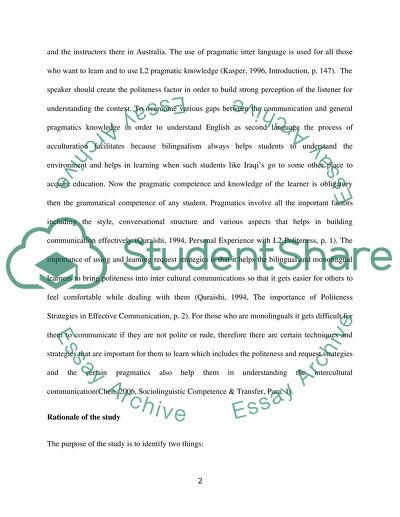Cite this document
(“Requests strategies encountered by Iraqi students in Australian Dissertation”, n.d.)
Retrieved from https://studentshare.org/human-resources/1423530-requests-strategies-encountered-by-iraqi-students-in-australian-universities
Retrieved from https://studentshare.org/human-resources/1423530-requests-strategies-encountered-by-iraqi-students-in-australian-universities
(Requests Strategies Encountered by Iraqi Students in Australian Dissertation)
https://studentshare.org/human-resources/1423530-requests-strategies-encountered-by-iraqi-students-in-australian-universities.
https://studentshare.org/human-resources/1423530-requests-strategies-encountered-by-iraqi-students-in-australian-universities.
“Requests Strategies Encountered by Iraqi Students in Australian Dissertation”, n.d. https://studentshare.org/human-resources/1423530-requests-strategies-encountered-by-iraqi-students-in-australian-universities.


